Exhilarating, Empowering and Enriching!
by Judge Mohini Moodley obo SAC-WILIL project team
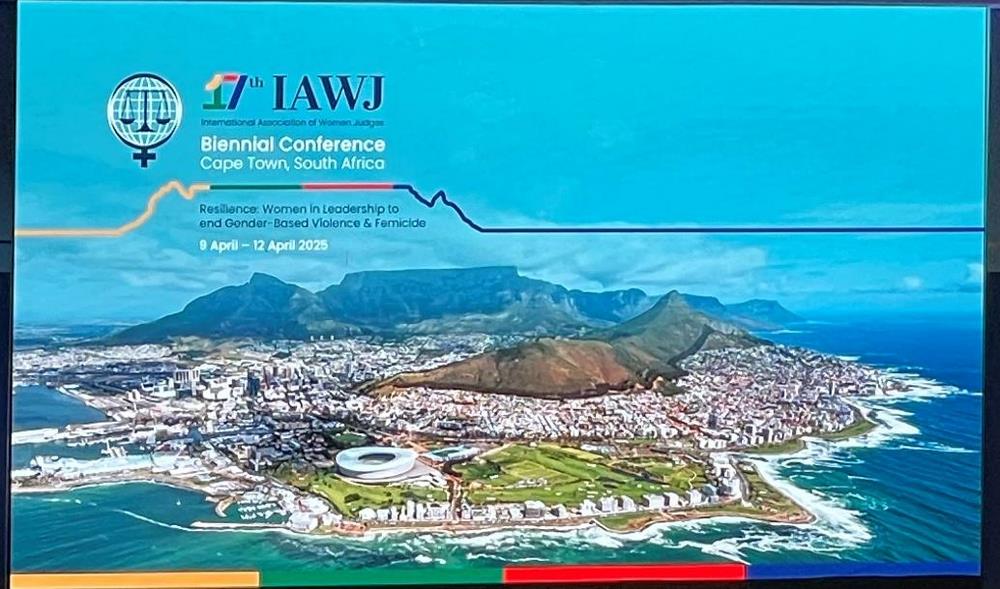
The SAC-WILIL team lauds the Biennial IAWJ Conference held in Cape Town, South Africa between 9-12 April 2025 as a resounding success. The South African Chapter of IAWJ hosted the conference, the theme of which was “Resilience: Women in Leadership to end Gender-Based Violence & Femicide”. Over 950 delegates representing the international membership of IAWJ attended the conference.
The SAC-WILIL team keenly anticipated the conference as it was the first opportunity that most of us had to attend a prestigious international IAWJ conference. The prospect of meeting and interacting with delegates from global jurisdictions, and in particular other WILIL project teams, added to our excitement and enthusiasm.
Nor were we disappointed. The opening ceremony was charged with excitement as judicial officers dressed in colourful national dress and waving the flags of their country, filled the auditorium of the impressive Cape Town International Conference Centre situated on the city foreshore. They acknowledged their attendance with songs and cheers of jubilation at the ‘Roll Call of Nations’ by IAWJ President Justice Binta Nyako of Nigeria.
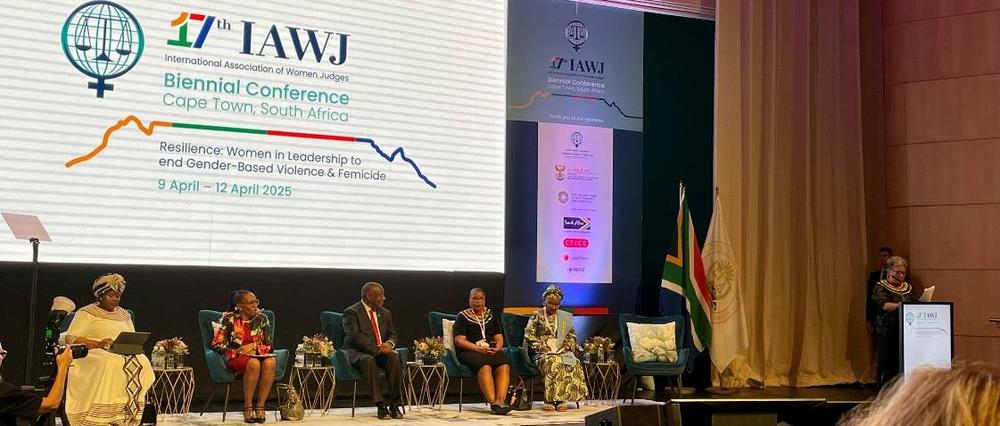
The significant presence of the South African President Cyril Ramaphosa, Ms Mmamoleko Kubayi the Minister of Justice and Constitutional Development, and Chief Justice Mandisa Maya at the opening ceremony, their powerful, relevant and empathetic addresses and the President’s clear and comprehensive knowledge of GBV and femicide and his pledge of support for effective action against GBV and femicide lent an appropriate gravity to the theme of the conference, and set the tone for the 2
following days. The President was widely admired by the delegates, who flocked to take photos with him, for which he graciously posed despite his awaiting official engagements. The first day ended with a ‘South African ‘Mzansi’ Welcome dinner at which the delegates dined, danced and networked, getting to know each other in the informal environment.
We were enthralled by the professional and personal experiences that informed the papers in the sessions over the next two days, presented with humour and sincerity and infused with empathy, expertise and honesty. They invoked the realisation that all women judicial officers were exposed to similar trauma and risk the world over, that GBV was a reality and a scourge that has infected all our communities and the judiciary too. As noted by our sole male SAC-WILIL team member, Advocate Kemi Behari, the shift from HIStory to HERstory was “particularly capturing since I embraced this concept during training on Social Context”.
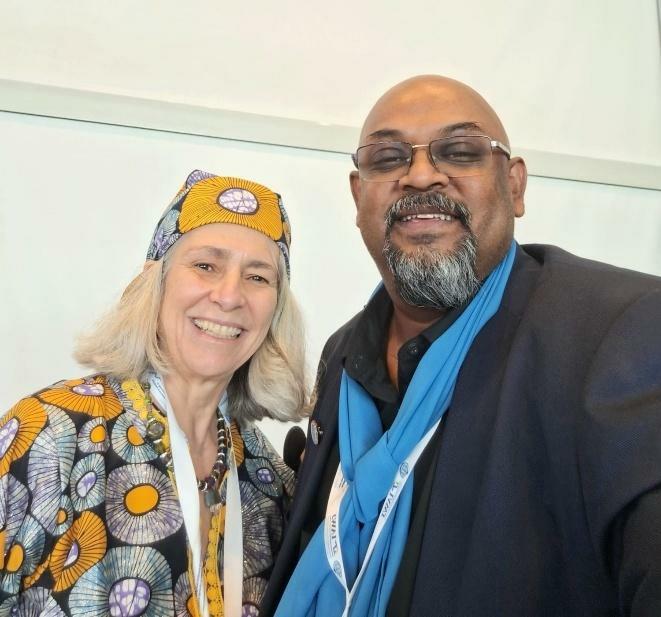
Adv Kemi Behari and Ms Anne Goldstein
The political motivation behind the persecution of female Afghan judges, documented in the book entitled ‘Escape from Kabul’ was made palpable by the presence of some of them at the conference. We were impressed with the role of IAWJ in rescuing and relocating close to 200 Afghan judicial officers and their families, enabling them to live in a less dangerous and toxic environment, yet sadly removed from their national home and familial roots. In Ukraine, women judges are also exposed to war conditions as explained by Judge Viktoria Antonova in her paper entitled “Justice under fire”- The work of Ukrainian Women Judges during the war.
Papers on inclusiveness, equality and diversity were presented by Judge Amy M. Sakalauskas, President of the International Association of LGBTQ+ Judges, Canada and Judge Tapiwa B Kganyago, of the Industrial Court Botswana, countries geographically distanced far apart, but united in their protection of the rights of the LGBTQ+ and LGBTQI+ community. These papers resonated with us, especially in view of the current events in the United States of America where diversity has become a reason for persecution instead of being accorded respect and legitimacy as a human right.
We also observed the pain and tribulations evident in some of the presenters as they spoke about their exposure to GBV. It was apparent from the utter silence in which the delegates listened to Magistrate Kefilwe Resheng, Principal Magistrate, Botswana about her personal experience of ‘Violence against Judicial Officers’ that the fear and terror she had felt, were shared by all in the room. We hope that sharing the violent and traumatic experience provided a cathartic release for her. At this appropriate stage, Retiree Judge Claire Gilham and Judge Kalyani Kaul of the United Kingdom spoke to the need for mutual support and judicial welfare and wellness without prejudicing judicial independence. The best advice came from Magistrate Judge Nancy Joseph, of Wisconsin, USA, when she urged us to ‘Put Your Oxygen Mask on First!’. This is a catch phrase that we hope every delegate took home from this conference and practises effectively.
The intense atmosphere in the auditorium was uplifted at regular intervals by short ‘Movement Breaks’, during which pulsating music filled their sober minds and hearts and displaying their resilience and empathy, the delegates rocked and danced with abandon, led by our own judge of the Constitutional Court, Justice Leona Theron.
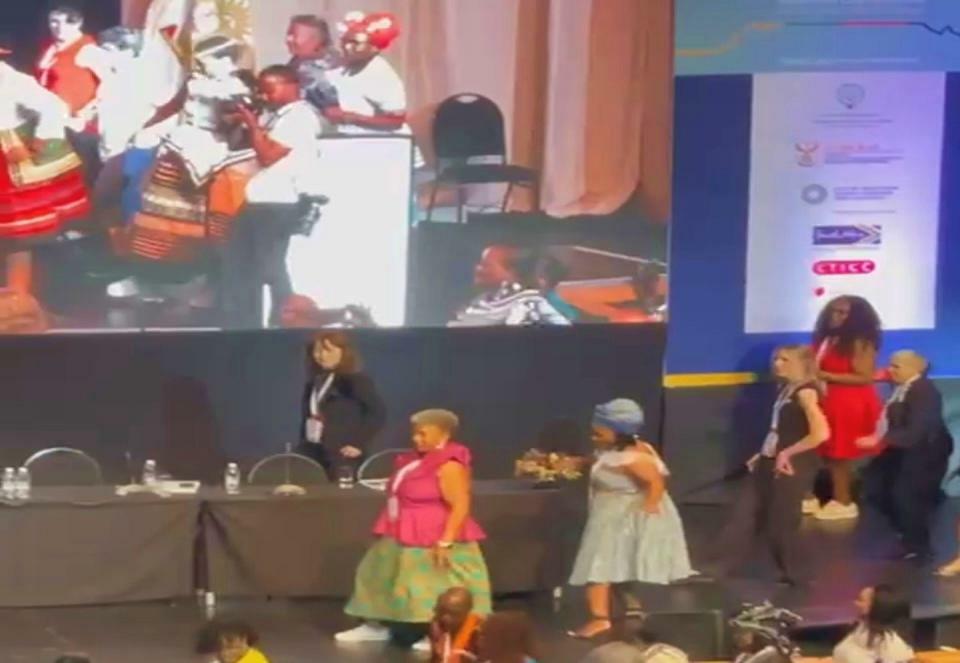
Justice Theron leading the Movement Break
The afternoon session on day two was equally riveting. It commenced with three papers on Human trafficking and Marginalized communities, which provided insight by Magistrate Judge Laura Fashing and Justice Jhosep Y. Lopez as to how these crimes are perpetrated in New Mexico, USA, and in the Philippines respectively. Judge Susana Medina de Rizzo of Argentina provided an original and interesting perspective in her paper “Surrogacy and Human trafficking”. These insightful presentations proved useful and relevant to the South African delegates as human trafficking has become very prevalent in Southern Africa.
The day ended with a session directed moderated by Judge Lani Opperman, a member of the SAC-WILIL technical team. Dr Linda Naidoo, United Nations Office for Drugs and Crime, furnished recommendations for a tailored approach to Femicide Review Methodology. A panel discussion on “Sexual Harassment and Sextortion within Judicial Systems- The Ugandan Perspective and Interventions, Collaboration between Jurisdictions ” presented by Judge Olive Kazaarwe Mukwaya of Uganda with Justice Jean Kayira and Ms Sarai Chisala of Malawi and Ms Zikhona Ndlebe of DGRU University of Cape Town, South Africa, followed. The panel discussed the interventions and policies which have been formulated to counter sexual harassment and sextortion within judicial systems across the SADC region. These include an Interactive Voice Response system in multiple local languages enabling confidential reporting; a comprehensive train-the-trainer program for focal judicial officers on trauma-informed responses incorporating psychosocial support; and technical assistance for developing institutional anti-harassment policies. The panel discussion was very informative especially to the SAC-WILIL team which is currently undertaking interventions in the Sexual Harassment Policy for the Judiciary in South Africa.
Amie Lewis, the Senior Program Officer for IAWJ, with the assistance of Ms Anne Goldstein, facilitated a meeting of the 5 WILIL teams during one of the breaks. Although brief because of time constraints and Kenya being occupied elsewhere, it proved worth the effort to meet the other teams and share our projects and planned interventions.
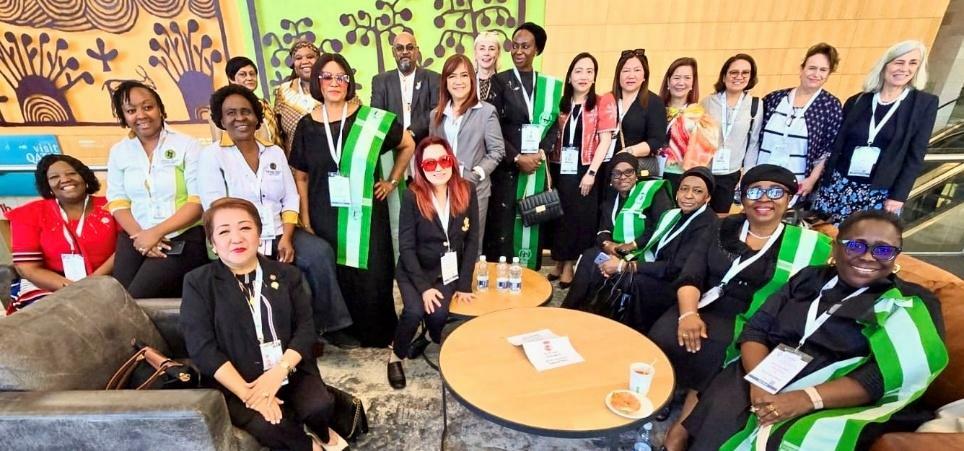
WILIL Project Teams meeting
Day three of the conference commenced with a plenary session on Judicial Activism in Gender-Based Violence Cases, in which Justice Lucy McSweeney of Canada described ‘intimate partner violence’ as ‘an epidemic’. Justice Leona Theron of South Africa described ‘How the law in South Africa post-democracy has been used to improve the position of women’, with reference to GBV. Judge Sonia Bertram Linton of Jamaica discussed the significance of Judicial Activism to counter “Rape Shield Law” in gender violence cases. Acting Chief Justice Roxane George of Guyana spoke to the necessity of judicial officers ‘Ensuring Due Diligence Obligations of States’ and illustrated how activist judgments have supported women’s rights in the English-speaking Caribbean. Judicial activism is frequently met with resistance and women judicial officers are vulnerable to criticisms of prejudice and emotional bias. We therefore hope that this session encouraged our members to take a robust and confidence stance in their judgments and become active proponents of judicial activism.
The second plenary session on Technology, and Cyberviolence commenced with Regional Court President Jakkie Wessels of South Africa tackling the issue of whether our justice systems can effectively and adequately deal with cyberviolence, given the infrastructure and monetary constraints, which from our discussions with other delegates differed from country to country. The three following papers elucidated the impact of Artificial Intelligence, cyberviolence as an instrument of female torture and the impact of technology on GBV. These were new concepts to us and we need to wrap our collective minds around these issues in order to integrate them into our judicial activities. SAC-IAWJ workshops to interrogate and resolve these issues in practice will certainly prove useful.
The third plenary session on ‘Gender Based Violence-Harmful Practices’ proved very useful to the South African delegates as our judicial officers experience practically every day the adverse impact of ‘Cultural Beliefs and their impact on fighting Sexual offences against women and the girl child’ as discussed by Justice Dr Catherine Ojugbana-Orishedere of Nigeria. Judge Piedrafita of Spain explained the usefulness of the program “Educating on equal justice” for teenagers as a vaccine against gender violence.
The papers in the final plenary session on ‘Gender and Climate Change’ dealt with the impact of climate change on women and other vulnerable groups, consequent litigation and GBV, and the role of the courts and the judiciary in promoting climate justice. This provided another set of innovative discussions around which workshops may be held. The social highlight of the day was the Gala Dinner, for which the delegates donned elegant ballgowns and traditional costumes. The SA Navy band provided the music which many of our guests could not resist and were drawn onto the dance floor between the formalities and dinner courses. But it was during the Parade of Nations that, despite the lateness of the program, the South African delegates led by Judge President Segopotje Mphahlele, the SAC-IAWJ Deputy President, moved en masse onto the dancefloor singing and ululating. The jubilation and joyful celebration of our national identity infused the guests, and drew even the Minister of Justice, the Chief Justice and SAC-IAWJ president, Judge President Thoba Poyo-Dlawati, onto the floor.
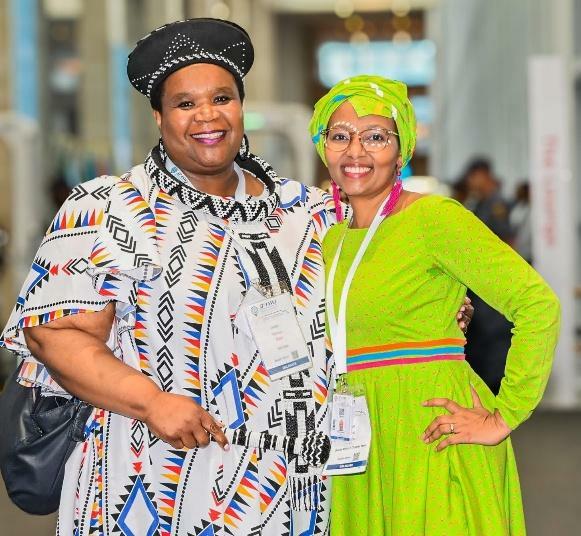
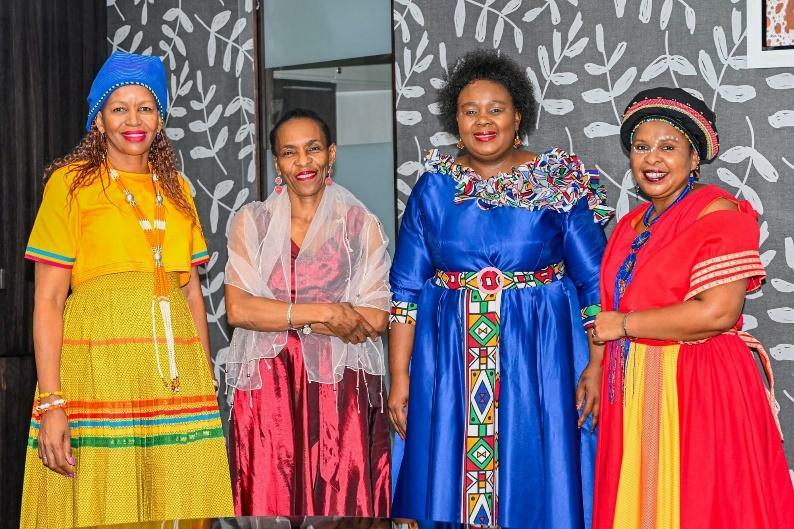
DJP Tebogo Djaje and Judge Carol Sibiya JP Segopotje Mphahlele, CJ Mandisa Maya, Minister M Kubayi and JP Thoba Poyo-Dlawati
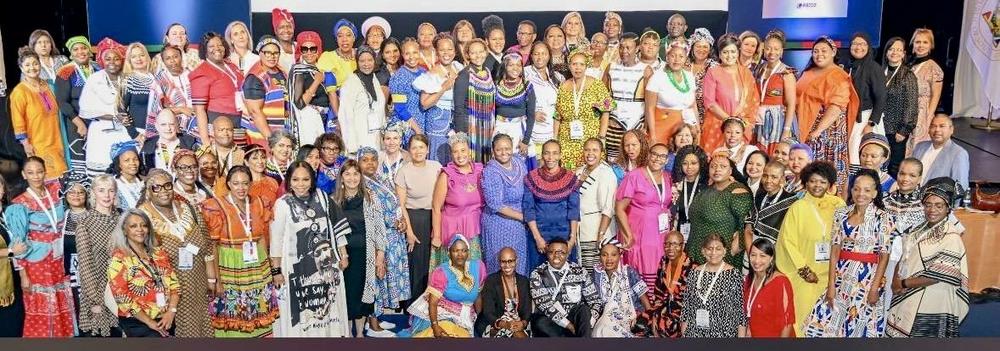
All smiles from the South African delegates
When the dancing and singing subsided, the celebrations continued with the presentation of the IAWJ awards. The joint recipients of the Arline Pacht Global Vision Award for 2025 are Honourable Judge Rosalina Luna Pison of the Philippines and Justice Navanethem Pillay of South Africa, in recognition of the contribution to their long term contribution to the IAWJ and its vision and objectives. Justice Pillay was nominated as a worthy recipient of the by SAC-IAWJ as she is a global icon recognised for her contribution to the protection of human rights nationally and internationally. Judge Mohini Moodley, a judicial coordinator on the SAC-WILIL team, accepted the award on behalf of Justice Pillay and duly handed it over to her.
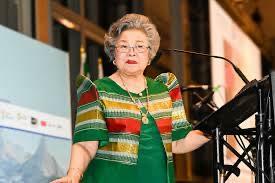
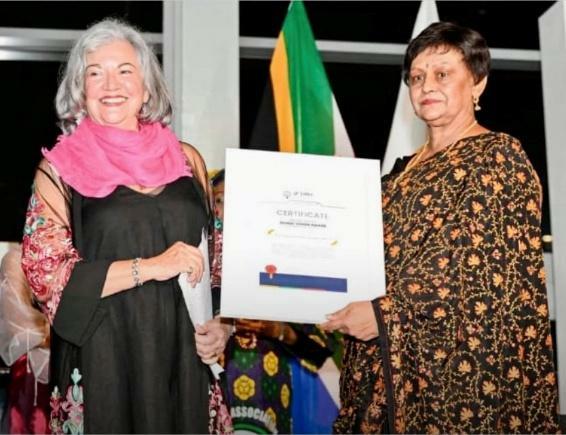
Judge Rosalina Luna Pison Justice Vanessa Ruiz and Judge Mohini Moodley
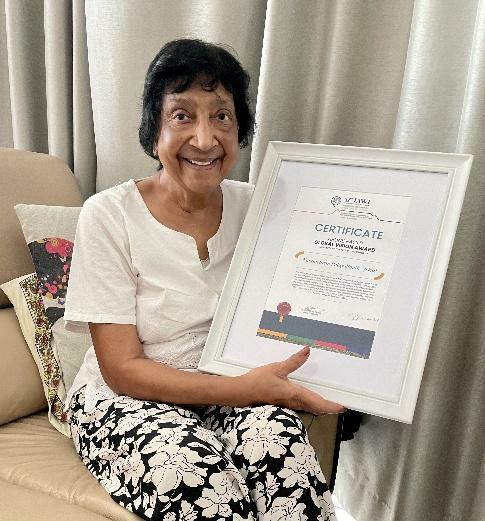
Justice Navi Pillay
The recipient of the IAWJ Human Rights Award was fittingly our own Chief Justice Mandisa Maya in recognition of her leadership and a commitment to ensuring the application of the principles of human rights and other significant initiatives in the furtherance of justice for women, children and families.
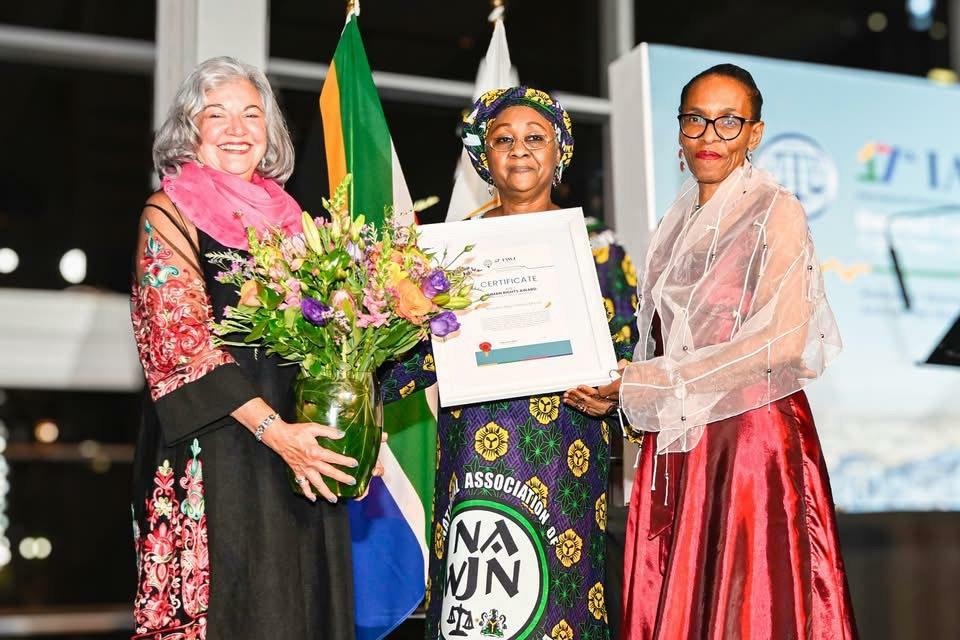
Justice Vanessa Ruiz, Justice Binta Nyako, Chief Justice Mandisa Maya
The conference ended on high a note as it had commenced. A magnificent feat for the organizing team in South Africa and the IAWJ! It now remains for the lessons learnt and the imperatives imparted at the conference to be implemented by the attending delegates as far as is practically possible. The WILIL-SAC team is extremely grateful for the enriching experience and anticipates that the benefits of attendance at the conference will reflect in due course in its activities and projects.